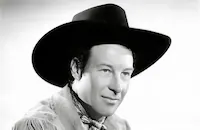Boy of the Streets

Brief Synopsis
Cast & Crew
William Nigh
Jackie Cooper
Maureen O'connor
Kathleen Burke
Robert E. O'connor
Marjorie Main
Film Details
Technical Specs

Synopsis
In a predominantly Irish slum in New York, sixteen-year-old Chuck Brennan has become the leader of a gang, in emulation of his father, who, Chuck believes, has become an important leader in ward politics without working at a job. To help Norah, a neighbor whose mother is taken to a sanitarium for tuberculosis, Chuck arranges for her to sing at a nightclub, but because she is underage, women from the Children's Aid Society arrive to take her to an orphanage. Julie Stone has recently inherited the tenement in which Norah and Chuck's family live, and with the help of the neighborhood doctor, she is trying to fix it up. Julie pays to send Norah to a private girls' school. During a fight between Chuck's gang and a rival Italian gang, Spike, a young black shoeshine boy, is killed when he tries to save Chuck from getting hit by a truck. After Chuck's mother blames him for Spike's death, he goes to ward boss Olden's office looking for work, but sees that his father is only Olden's stooge. Chuck then goes to work for gambler Blackie Davis, who is trying to shake down establishments in Chuck's neighborhood, but during a break-in at a laundry warehouse, Chuck tries to prevent Blackie from shooting the neighborhood cop Rourke, and both he and Rourke are shot. In the hospital, Chuck realizes that Blackie used him for a stooge and fought unfairly without giving Rourke a chance. He tells Rourke that he feels bad for calling his father a stooge and gives Blackie's address. After he turns seventeen, Chuck says goodbye to his parents, Julie and Norah, whom he hesitatingly kisses, and ships out with the Navy.

Director
William Nigh
Cast

Jackie Cooper
Maureen O'connor
Kathleen Burke
Robert E. O'connor

Marjorie Main
Matty Fain
George Cleveland

Gordon Elliott
Guy Usher
Paul White
Don Latorre
Edwin Brian
Hollis Jewell
Wesley Giraud
Robert Tucker
Kent Rogers
Johnny Morris
Frank Malo
Mortimer Kurt
Henry Caruso
Al Frazer
Frank Bishell
Freddie Jackson
Crew
Gilson Brown
Rowland Brown
Scott Darling
Scott R. Dunlap
W. B. Eason
E. R. Hickson
George Kann
George E. Kann
Abe Meyer
Russell Schoengarth
W. C. Smith
Gilbert Warrenton

Film Details
Technical Specs

Articles
Boy of the Streets (1937) -
By Richard Harland Smith

Boy of the Streets (1937) -
Quotes
Trivia
Notes
Variety called this film Monogram's most ambitious production to date. Some reviews noted similarities to Samuel Goldwyn's Dead End (see AFI Catalog of Feature Films, 1931-40; F3.0981), which was released a few months earlier. Harrrison's Reports commented, "It is a sort of Dead End, in which George Kann, the producer, and William Nigh, the old reliable director, have been able to accomplish almost what Sam Goldwyn accomplished with more than twenty times the amount of money they had at their disposal....The moral is the same in the story of this picture as it is in the story of Dead End-that poverty and environment in the tenement districts of the big cities breed criminals, and that the same young boys and girls, reared in a better environment, would turn out good citizens." According to New York Times, this film was awarded the Parents' Magazine medal for the best movie of the month. According to New York Times, Jackie Cooper, whose contract a year earlier was not renewed by M-G-M, was signed by Monogram for two more films because of his performance in this film. This was the first film of Maureen O'Connor, a fourteen-year-old radio singer. Doris Rankin is listed as a cast member in a Hollywood Reporter production chart, but her participation in the final film has not been confirmed.














